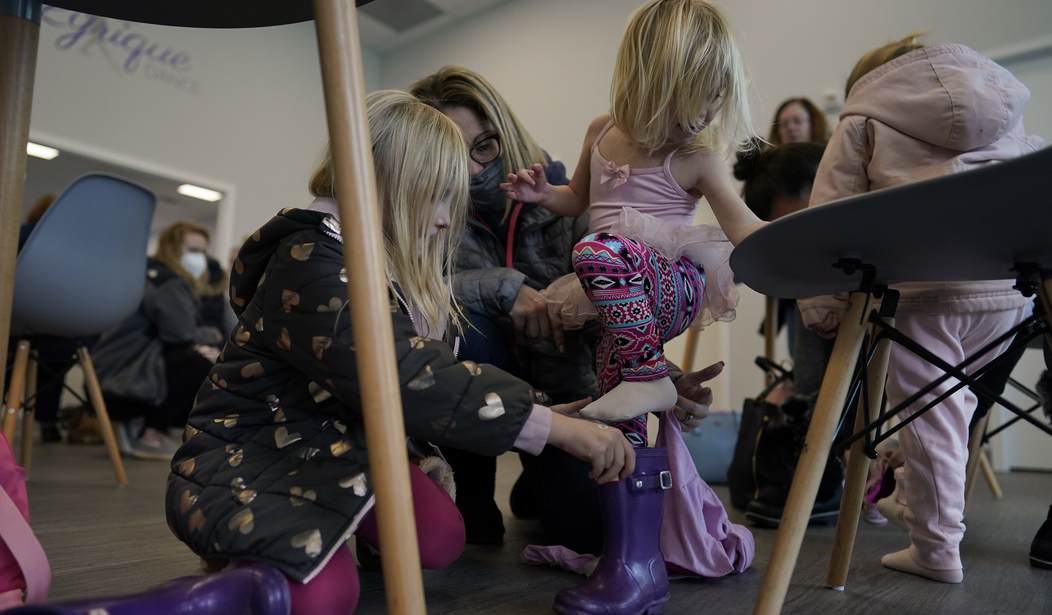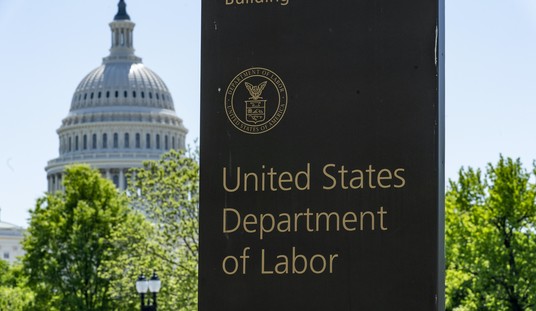Just when you think these people can’t go any lower, stories like this surface. Previously, I wrote about a report from Gender LCGB, which runs a Substack reporting on schools in various southern California districts that are infusing progressives ideology on race, gender identity, and sexuality into their K-12 classrooms.
In the piece, I explained how public school teachers in Ventura County were receiving training from a law firm on how to ensure that the parents of children dealing with gender dysphoria are not informed of their kids’ issues. But now, Gender LCGB has unearthed even more disturbing information about this story.
As it turns out, this law firm has given multiple presentations of its webinar, which is titled “My Name Is…A Legal and Practical Framework for Affirming Students’ Identities in their Records and in the School Setting.” Fagen Friedman, & Fulfrost LLP (F3), the law firm in question, was making sure teachers were “trained to implement gender ideology interventions – behavioral transition, social transition, ideology indoctrination – without notifying parents,” according to the report.
But, the firm’s webinar did not focus only on average students. It also included a section in its presentation that focused specifically on students with special needs, which brings up a whole set of other issues.
For a child to qualify for special education services in California, they must suffer from a recognized disability such as autism, Down syndrome, deaf-blindness, emotional disturbance, or other maladies. The presentation reinforced to educators that California’s School Success and Opportunity Act (AB 1266) allows teachers to conceal information regarding a student’s gender identity from their parents. School districts are also allowed to include progressive gender ideology in the classroom without parents’ knowledge or consent. The policy reads:
Preserving a student’s privacy is of the utmost importance. The right of transgender students to keep their transgender status private is grounded in California’s antidiscrimination laws as well as federal and state laws. Disclosing that a student is transgender without the student’s permission may violate California’s antidiscrimination law by increasing the student’s vulnerability to harassment and may violate the student’s right to privacy.
The legislation also requires schools to let students use the bathrooms and locker rooms corresponding to their chosen gender identity.
According to Gender LCGB, the F3 firm gave their presentation at least four times at various educational events and workshops. The presentation includes “best practices” to help teachers facilitate gender transitions and offer lessons on the subject while cutting parents out of the process.
California’s policy regarding informing parents also appears to apply to special needs students. From the report:
A concerned parent contacted the Foothill SELPA, which coordinates special education services for Glendale Unified, Burbank Unified and La Canada Unified and asked if children with Individualized Education Plans (IEP)4 who have Gender Support Plans have a right to keep their gender identity change confidential from their parents.
Deb Rinder, the executive director of the Foothill Special Education Local Plan Area (SELPA) replied, explaining that “gender plans are not part of the [Individualized Education Plans] and should be kept separate and confidential.”
The parent followed up, asking if there is “any set of criteria” that the state has in place “that would prevent a student from keeping their gender identity confidential from parents.” As an example, the parent asked about “any specific diagnosis” or “specified IQ range.” Essentially, they were asking if there are any mental conditions or disabilities a student could have that would require educators or school staff to notify parents of issues related to gender or sexuality. Rinder responded, saying she was “not aware of any criteria from the SELPA or the STATE” that the parent referenced.
This means that if a child has a mental health issue or disability that might indicate they are not able to make decisions regarding gender identity, district employees will not inform parents if they seek to make a transition. The presentation provides a series of hypothetical situations in which a student with a disability might be related to gender dysphoria, meaning that a transgender kid might qualify for special needs education.
In one hypothetical scenario, the presentation discusses a situation in which a child with a Specific Learning Disability (SLD) who is struggling with their gender might need special education services. One of the points on the PowerPoint slide asks “[d]oes the student require counseling related to their social-emotional functioning and gender identity? Is it impacting the student educationally?”
This section is particularly problematic because the school could potentially refer the child to psychological counseling services through special education that would likely affirm that the student should transition to another gender. Indeed, the report explains that under H&S Code 124260, a child 12 years old and over can “consent to outpatient mental health services without parental knowledge or consent.” It is not difficult to see how this could go very wrong, is it?
It is important to note that under California law, being transgender or having a gender diverse identity in and of themselves are not qualifying factors to be designated as special needs. However, by suggesting that gender dysphoria or society’s reaction to one who might be transgender could lead to certain disabilities or cause an “Emotional Disturbance,” they could ensure that the child qualifies for a special education designation. If the student is 12 or older, this means they could be sent to a psychologist to discuss their gender identity without their parents knowing.
But one of the most pernicious aspects of this story is how it might affect kids dealing with autism or other such conditions. These children are highly suggestible and vulnerable to embracing another gender identity. One of the slides acknowledges that those with Autism Spectrum Disorder (ASD) are “7.59 times more likely to express gender variance than the control group.”
The study was conducted prior to the push for gender ideology in K-12 classrooms. The report notes:
What is not disclosed in this slide is what consequential outcomes emerge from this higher expression of gender variance. Do youth with ASD who express gender variance usually desist at a later time or do they ask to transition to the opposite gender? According to current guidelines from organizations like the World Professional Association for Transgender Health (WPATH) and GLSEN (formerly the Gay, Lesbian & Straight Education Network), these children would now be encouraged to socially transition, and perhaps medically transition.
The author also points out that “[k]nowing that ASD youth are 7.59 times more likely to express gender variance should demand caution from adults when talking to these children about such topics. Instead the slide and those that follow encourage assisting ASD youth in how to properly transition, given they ‘cannot copy behaviors well.’”
Not much discussion has been given to how the left’s efforts to indoctrinate and groom children in schools might affect those with special needs. But in California, it appears they are targeting these students as well. It is not the only state that requires teachers to keep parents in the dark about their children’s gender identity. This could be happening in many more school districts, with many parents unaware. Unfortunately, it will continue until there is enough of a backlash against it.













Join the conversation as a VIP Member